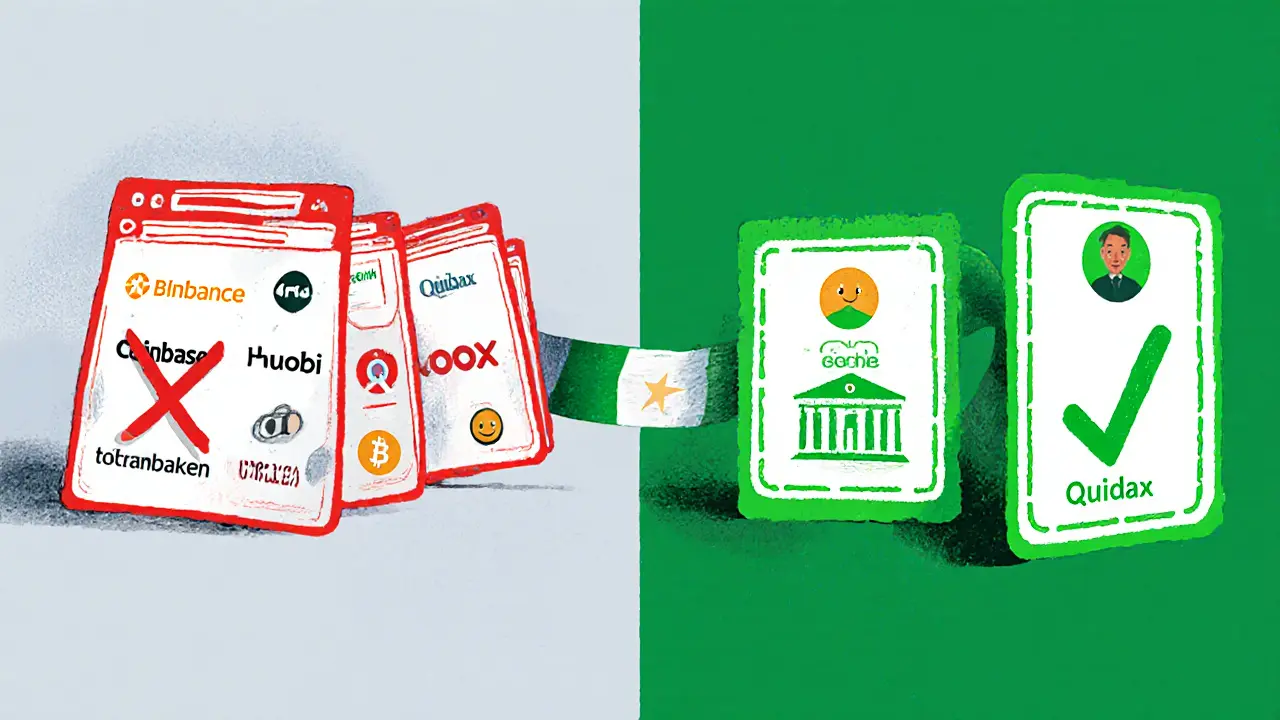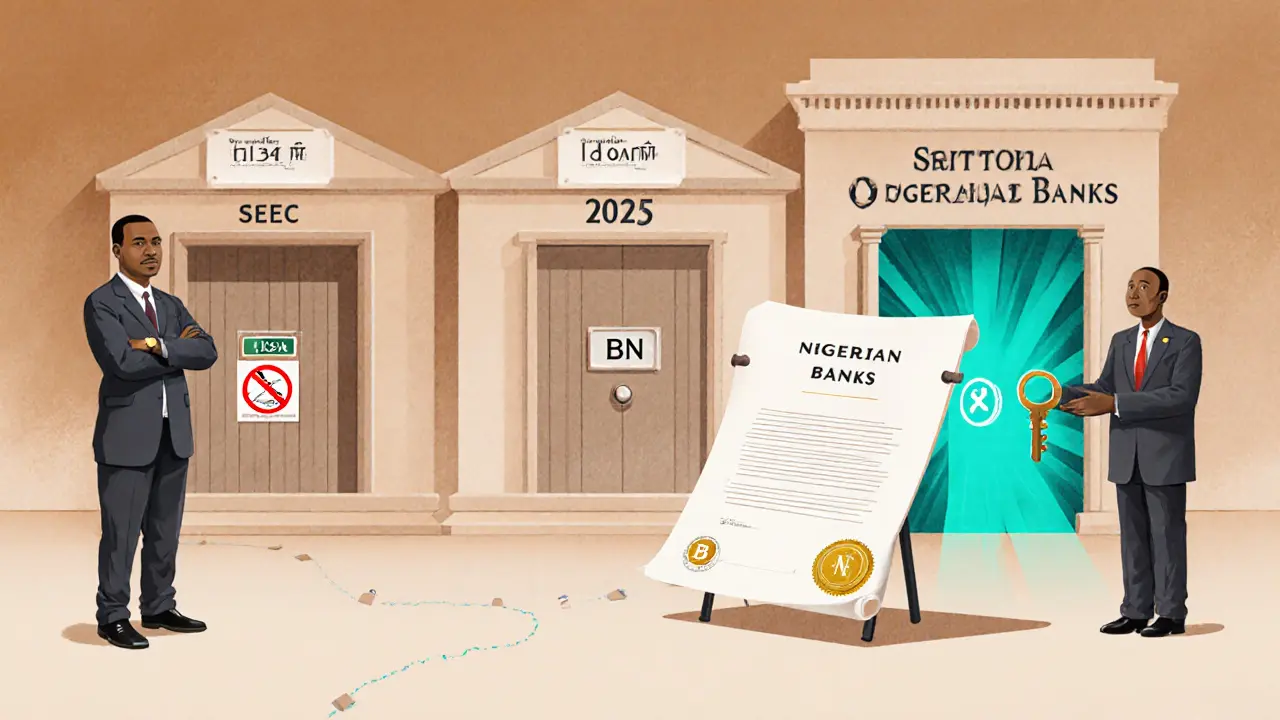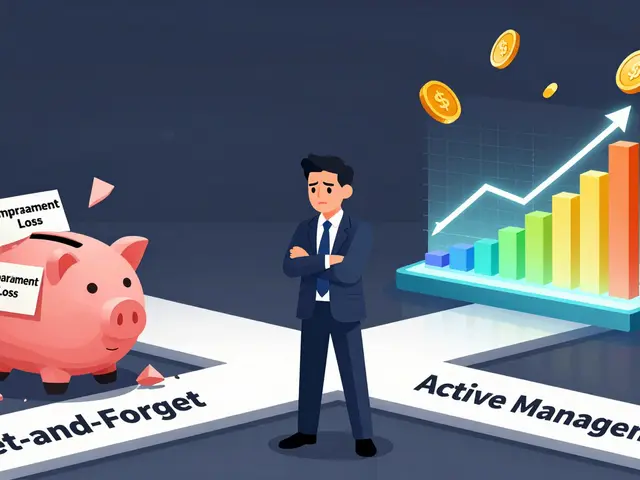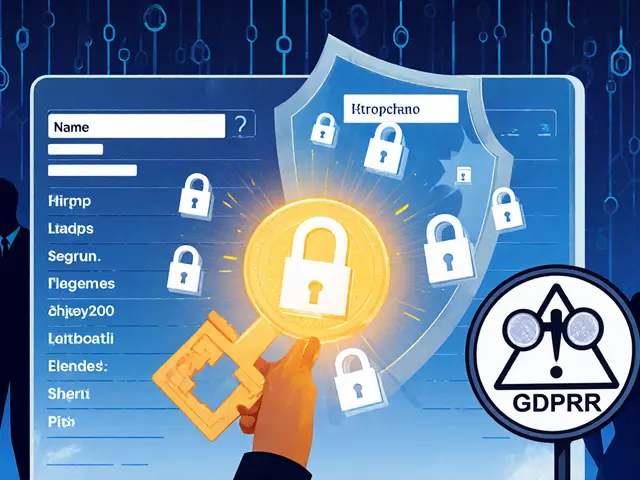Nigerian Crypto Exchange Checker
Check Exchange Status
Enter the name of a cryptocurrency exchange below to see if it's licensed, restricted, or banned in Nigeria according to the 2025 regulations.
Currently Licensed Exchanges in Nigeria
Quidax
LicensedFull AML/KYC, real-time monitoring, CBN-approved banking partners.
Busha
LicensedEnhanced dispute resolution, SEC reporting, anti-fraud analytics.
Currently Banned/Unlicensed Exchanges
Binance
Unlicensed (Naira services blocked)Crypto-to-crypto trading allowed via VPN; Naira deposits blocked.
Coinbase
UnlicensedNo SEC license; accessing site violates ISA 2025.
Kraken
UnlicensedNo local licensing; transactions considered unregistered.
Huobi
UnlicensedNo local licensing; prohibited under ISA 2025.
OKX
UnlicensedNo local licensing; prohibited under ISA 2025.
KuCoin
UnlicensedNo local licensing; prohibited under ISA 2025.
Ever wondered which crypto exchanges you can’t legally use in Nigeria today? The answer isn’t a simple "yes or no" list - the country moved from a blanket ban to a licensing‑only regime in 2025. That means some platforms are outright prohibited, others are restricted to a few functions, and a handful are officially approved. This guide walks you through the current ban landscape, shows why the rules exist, and tells you how to stay on the right side of the crypto exchanges banned Nigeria rulebook.
TL;DR - Quick Takeaways
- Unlicensed exchanges are prohibited by the Securities and Exchange Commission (SEC) under the ISA 2025.
- Binance’s Naira‑to‑Naira services are blocked, but crypto‑to‑crypto trade still works via VPN.
- Locally licensed platforms - Quidax and Busha - operate legally and comply with AML/KYC rules.
- Using unlicensed foreign exchanges can lead to fines of ₦10million for the first month of non‑compliance.
- Stay updated: the SEC is reviewing more applications for 2025‑2026, so the list may change.
How Nigeria’s Regulatory Framework Evolved
Nigeria is a West African nation with the continent’s largest cryptocurrency market. In 2021 the Central Bank of Nigeria (CBN) ordered banks to close crypto accounts, effectively freezing most exchange activity. By late 2023 the CBN relaxed that stance, allowing banks to serve licensed crypto businesses. The decisive shift came in March2025 when President Bola Ahmed Tinubu signed the Investments and Securities Act (ISA2025) a law that classifies digital assets as securities and creates a licensing regime for Virtual Asset Service Providers (VASPs).
The Securities and Exchange Commission (SEC) Nigeria’s primary market regulator, now responsible for issuing crypto‑exchange licenses became the enforcement engine. Any exchange that fails to register with the SEC is deemed illegal and subject to immediate shutdown, asset freezing, and hefty penalties under the Nigeria Tax Administration Act (NTAA2025).
Which Exchanges Are Effectively Banned?
The ban list isn’t a static naming of platforms; it’s a legal status. An exchange is "banned" when it operates without SEC approval. As of October2025, the following high‑profile services fall into that category:
- Binance global crypto giant whose Naira‑to‑Naira peer‑to‑peer (P2P) service was suspended in February2024. While the platform still allows crypto‑to‑crypto trades, direct Naira deposits and withdrawals are blocked, and the domain is filtered by Nigerian telecoms.
- Coinbase - no SEC license, therefore users accessing its web portal are violating the ISA2025 provisions.
- Kraken - same licensing gap; any Nigerian‑resident transaction on Kraken is considered unregistered.
- Huobi, OKX, and KuCoin - all lack local licensing and are subject to the same prohibition.
In practice, users can still reach these sites using VPNs or proxy services, but that puts them in a regulatory gray area. The SEC has warned that persistent use of unlicensed platforms may trigger investigations by the Economic and Financial Crimes Commission (EFCC) and the Nigerian Financial Intelligence Unit (NFIU).
Licensed Exchanges That Are Safe to Use
Only a few exchanges have cleared the SEC’s rigorous vetting process:
| Exchange | License Status | Key Compliance Features |
|---|---|---|
| Quidax | Licensed | Full AML/KYC, real‑time transaction monitoring, CBN‑approved bank integration |
| Busha | Licensed | Enhanced customer dispute resolution, periodic SEC reporting, anti‑fraud analytics |
| Binance (Naira services) | Restricted | Crypto‑to‑crypto only; Naira deposits blocked; VPN required for access |
| Coinbase | Unlicensed | None (prohibited) |
Both Quidax and Busha were granted licences in 2024 after demonstrating robust AML procedures, secure custody solutions, and the ability to share transaction data with the Central Bank of Nigeria (Central Bank of Nigeria (CBN) the nation’s monetary authority, which provides guidance on VASP compliance).

What Triggers a Ban - The Legal Mechanics
The ISA2025 treats any digital‑asset service provider that does not register with the SEC as a "prohibited operator". The law empowers the SEC to:
- Issue a cease‑and‑desist order the moment an unlicensed exchange is identified.
- Freeze any crypto assets held on the platform that are linked to Nigerian accounts.
- Impose an initial fine of ₦10million (~$6,700) for the first month of non‑compliance, plus ₦1million for each subsequent month.
- Refer severe cases to the EFCC for criminal prosecution under anti‑money‑laundering statutes.
These penalties are designed to discourage the use of offshore services that evade local consumer‑protection rules.
How to Verify an Exchange’s License Status
Before you sign up, follow these steps:
- Visit the SEC’s official crypto‑exchange registry page (the URL is published in the SEC’s monthly bulletin).
- Search the exchange name; a green checkmark indicates a valid license.
- Review the exchange’s AML/KYC documentation - licensed platforms must publish their compliance policies.
- Check for a CBN‑approved bank partner; the partnership is a strong signal of regulatory alignment.
- If the exchange is absent from the list, treat it as prohibited and avoid direct Naira transactions.
Most Nigerian crypto news sites now publish a weekly “licensed‑exchange roundup” that highlights new approvals and revocations.
Practical Tips for Nigerian Users
- Stick to licensed platforms for any fiat‑to‑crypto conversion. It protects you from sudden account freezes.
- If you must use an unlicensed exchange for crypto‑to‑crypto swaps, always withdraw to a personal wallet you control. Never keep large balances on prohibited sites.
- Maintain thorough records of all transactions - the NTAA2025 will require detailed reporting for tax purposes starting in 2026.
- Consider a VPN only as a last resort, and be aware that regulators may view it as an attempt to evade compliance.
- Watch the SEC’s quarterly updates; the licensing pipeline is expected to open for additional foreign exchanges in early 2026.
Future Outlook - Will More Exchanges Get Banned?
Analysts predict three possible scenarios for the next 12‑month horizon:
| Scenario | Impact on Exchanges | Likelihood |
|---|---|---|
| Full Licensing Expansion | More foreign platforms obtain SEC approval, reducing the “banned” list. | Medium |
| Stricter Enforcement | SEC intensifies crackdowns, adding more names to the prohibited register. | Low |
| Status Quo | Current banned vs. licensed split remains stable. | High |
Given the NTAA2025’s tax‑compliance pressure, the most plausible outcome is a gradual opening: more exchanges will seek licences, but the SEC will keep a tight leash on AML/CFT standards.
Frequently Asked Questions
Is Binance completely banned in Nigeria?
No. Binance’s Naira‑to‑Naira peer‑to‑peer service was blocked in 2024, but the platform still allows crypto‑to‑crypto trades. Users must use a VPN to bypass the domain block, and any direct Naira deposit or withdrawal remains prohibited.
How do I know if an exchange is licensed?
Check the Securities and Exchange Commission’s official registry. Licensed exchanges appear with a green checkmark and include details about their AML/KYC compliance and bank partners.
What are the penalties for using an unlicensed exchange?
The NTAA2025 imposes an initial fine of ₦10million for the first month of non‑compliance, plus ₦1million for each subsequent month. Severe cases can lead to criminal prosecution by the EFCC.
Can I still trade on foreign exchanges if I use a VPN?
Technically you can, but doing so puts you in a regulatory gray area. The SEC may consider it an attempt to evade licensing rules, and you could face fines if caught.
What are the benefits of using a licensed exchange like Quidax?
Licensed platforms offer consumer protection, transparent fee structures, direct integration with Nigerian banks, and compliance with AML/CFT standards, which reduces the risk of sudden account freezes or fines.












People Comments
If you're looking to stay on the right side of the SEC, start by bookmarking the official registry page. Every licensed platform shows a green checkmark next to its name, which makes verification a breeze. Keep an eye on the "licensed‑exchange roundup" that crypto news sites publish weekly; they often flag new approvals before the official list is updated. Also, always store your private keys offline; even licensed exchanges can suffer hacks, and a hardware wallet gives you an extra safety net. Finally, maintain a simple spreadsheet of all your trades – the NTAA2025 will soon require detailed reporting, and having the data ready will save you headaches later.
The evolution of Nigeria's crypto policy reads like a tapestry woven with ambition, caution, and global pressure, each strand pulling the market in a different direction, and the 2025 ISA act serves as the loom that finally brings order to the chaos. When the CBN first shut down bank accounts in 2021, the shockwaves rippled through every trader's portfolio, prompting a diaspora of P2P activity that thrived in the shadows. By 2023, the gradual relaxation signaled a tentative embrace, yet the underlying fear of money‑laundering persisted, nudging regulators toward a licensing model. This shift is not merely bureaucratic; it reflects a deeper desire to align with international AML standards while preserving the innovative spirit that makes Nigeria the continent's crypto hub. In other words, the crackdown is as much about global credibility as it is about protecting local investors.
From a regulatory perspective the article glosses over the most critical enforcement mechanisms, providing a surface‑level overview that fails to warn seasoned users about the practical ramifications of non‑compliance. The mention of ₦10 million fines is accurate, yet it omits the cascading penalties for repeated violations, which can cripple small trading operations. Moreover, the piece neglects to discuss the EFCC's recent raids on unlicensed entities, an oversight that could mislead readers into a false sense of security. In short, the guide serves as a cursory checklist rather than a comprehensive risk assessment.
It's worth emphasizing that licensed exchanges like Quidax and Busha not only meet the SEC's AML requirements but also offer dedicated customer support channels, which can be crucial during regulatory inquiries. Users who prioritize transparency should verify that the platform publicly shares its compliance reports, as this demonstrates a commitment to ongoing oversight. By staying informed and choosing regulated providers, you reduce the likelihood of encountering sudden account freezes or unexpected fees.
Oh great, another list that tells us what we already knew.
The crypto world is a battlefield of ethics, and turning a blind eye to unlicensed exchanges is nothing short of moral cowardice. When you trade on platforms that ignore Nigerian law, you empower shadow networks that thrive on secrecy and exploitation. True believers in financial freedom must stand with the SEC’s licensed champions, for only they honor the principles of fairness and consumer protection that we all deserve.
While the previous critique highlights procedural gaps, it is essential to recognize that Nigeria’s sovereign right to regulate its digital assets cannot be undermined by external entities. The SEC’s stringent licensing framework reflects a commitment to national security and economic independence, ensuring that foreign platforms do not circumvent our monetary policy.
Thinking about the regulatory timeline, it feels like a river that keeps changing course, sometimes swift, sometimes stagnant, yet always shaping the landscape for those who dare to navigate it.
Great job staying updated! 👍 Keep tracking the SEC list and your wallets will stay safe. 🚀
Our economy deserves crypto services that respect Nigerian law, not foreign loopholes that threaten our financial stability.
From a compliance architecture standpoint, the moral framing presented earlier lacks quantifiable risk metrics; a robust governance model would incorporate KYC/AML audit trails, Transaction Monitoring Systems (TMS), and real‑time Suspicious Activity Reporting (SAR) to satisfy both regulatory mandates and ethical standards.
Remember, staying within licensed ecosystems not only shields you from fines but also contributes to a healthier crypto ecosystem for all Nigerians. 🌍 Keep the community informed and empower each other! 💪
Understanding the nuances of Nigeria's crypto licensing regime is akin to assembling a complex puzzle, where each piece represents a different regulatory requirement. First, any exchange seeking SEC approval must submit a comprehensive AML charter that outlines customer onboarding, transaction monitoring, and suspicious activity reporting procedures. Second, the platform must establish a partnership with a CBN‑approved banking institution, enabling seamless fiat on‑ramps and off‑ramps for Nigerian users. Third, ongoing compliance audits are mandatory; the SEC conducts quarterly reviews to verify that AML/KYC protocols remain robust against evolving threats. Fourth, data sharing agreements with the Nigerian Financial Intelligence Unit ensure that large or atypical transactions are flagged in real time. Fifth, a dedicated compliance officer must be stationed within Nigeria, serving as the point of contact for regulatory inquiries. Sixth, the exchange’s smart‑contract architecture should be audited by an accredited firm to prevent vulnerabilities that could be exploited for money laundering. Seventh, transparent fee structures are required, preventing hidden charges that could mislead consumers. Eighth, user education initiatives are encouraged, with mandatory disclosures about the risks inherent in digital asset trading. Ninth, the exchange must maintain an insurance fund or similar financial safeguard to cover potential losses stemming from operational failures. Tenth, all marketing materials must be reviewed for accuracy and must not promise guaranteed returns, a common pitfall in the crypto space. Eleventh, the platform should implement multi‑factor authentication and cold storage solutions for custody of user assets. Twelfth, any changes to the service, such as adding new trading pairs, must be pre‑approved by the SEC. Thirteenth, the exchange must publish periodic compliance reports that are accessible to the public, fostering trust and accountability. Fourteenth, any breaches or security incidents must be reported to the SEC within 24 hours, ensuring swift remedial action. Finally, maintaining a proactive dialogue with regulators not only mitigates the risk of sanctions but also positions the exchange as a partner in Nigeria’s broader financial innovation agenda.
The comprehensive checklist you laid out showcases exactly why Nigerian traders should gravitate toward regulated venues; the clarity it provides is a game‑changer for community confidence. It's a roadmap that anyone can follow without needing a law degree.
While the exhaustive list is impressive, it skirts the point that many users simply lack the resources to switch platforms, leaving them vulnerable to the very penalties the guide warns about.